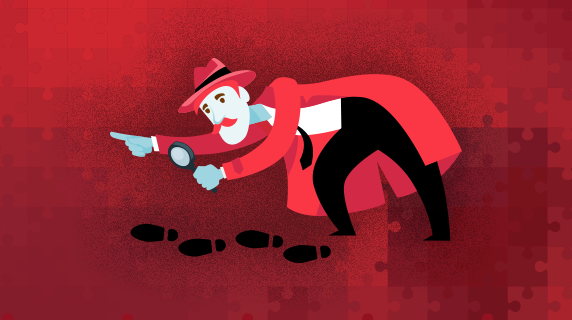Learning from Mistakes - Stop deflecting blame
By Prem on May 2, 2019

We experienced some unexpected close calls at work that required my complete attention over the last few days. It could have become a huge mess! Long story short, a colleague and I found some discrepancies in our model performance that rendered our strategy sub optimal. We carried out a careful review and caught the motherfucker - a simple statistical estimation error borne out of few outliers in our dataset that was missed by our data sanitization team. Consequently, the error had started to have a life of its own! We performed an immediate course correction and were able to improve model behavior.

Now, when you think about such errors, the first thing that comes to mind is, whodunit? But, what’s the fucking use. We found the source, but we realized it was our collective failure as a team for not having caught the error much earlier. It doesn’t make any sense to put the blame on someone else and act as if it wasn’t our mistake. Technically, it wasn’t but the model was our responsibility. Though the management insisted on the source, we took the blame collectively. Bosses were pissed and rightfully so. But hey, we caught the mistake before deployment, so they backed off from asking us to report on the engineer who missed it. When you want to share the accolades, you should also share the failures. Else, there is no point in working as a unit. I was a little worried that my colleague might not be game to take one for the team. But, before I could even ask, he insisted we take the bullet. I am so glad and lucky to work with such wonderful people. He and I lead a team of 14 and this incident has only made our team stronger and more tight knit than ever before.
I really did not have to mention this here. But, think about it, why should you always highlight only your successes? It is absolutely unthinkable that we would get by our entire lives without encountering failures - be it personal or professional. My failure could be a warning/lesson for someone who might change seeing my misfortune. Failures provide people with some of the biggest lessons in life. I have more than 15 years of professional experience and I have encountered failures a lot of times. At the same time, I have conquered each and every one of them and those failures have only made my life better. So, if you encounter failure, don’t fret. Understand why you failed and do what is necessary to correct yourself. Especially, when you are a Team Leader or a Manager, please for heaven sake do not try to deflect the blame! You will only come off as a giant asshole. There is absolutely nothing wrong in keeping the interest of the collective above your personal interest. Besides, focus on correcting the problem more than assigning blame. Don’t worry about the higher-ups. Trust me, they would come around soon. This is not a popularity contest and act like a responsible leader. It’s very easy to lead a team when you are succeeding. Leading a team during failures is where your character shines.

If you deal with financial instruments, I am sure you would understand why avoiding failures is a big fucking deal. You could work for a manufacturing firm and your boneheaded strategy could run it to the ground and people wouldn’t make you the issue (A mid-size specialty chemicals firm in Eastern EU came to us to help them restructure their analytics division. Within a few days we were alarmed to see the extent of the losses the firm had incurred due to a few bad decisions that came from the erstwhile analytics unit. One more year like this, the company would have actually become bankrupt. The overhaul we recommended worked and after a few months itself, we started to see a turnaround. In an informal chat, the CEO of the firm told me that he isn’t super pissed at the team from another consultancy that put together their failed analytics strategy. This was quite odd to be honest!) But, fail with a 1000 bucks of hard cold cash, you are the fucking Devil himself! It’s sad, but it’s true. Your investment strategy would have made billions for some HNI’s but if you lose a million dollars (knowing very well that it’s part of the whole package), people will always remember you as the guy who lost a million dollars, not as the guy who made 10 billion fucking dollars.

It is precisely for the aforementioned reason, there is very little room for error when working with financial products. You are like Damocles the whole time and there is absolutely no safety net! That’s why I have always relied on my engineering and physics background to build better models. The error we caught earlier showed that we were a bit complacent. Had we run the model long term, it would have been a disastrous investment strategy that would have actually killed the USP of our firm!
If you encounter something similar, please work on it as early as possible. There are instances, where I have seen teams ignore simple things only to descend into absolute chaos later when it fucks them up real bad. So if you spot something funky - investigate, investigate, investigate! Our models’ predictions after rectifying the error were 2% better than before. But it saved a lot of money and made our strategy unique - the reason why people come to us in the first place! Mathematical elements don’t care about your hard work or feelings. If you let your guard down, even for a little while, it will carve you up for good. Regardless, working with math is spiritually invigorating!